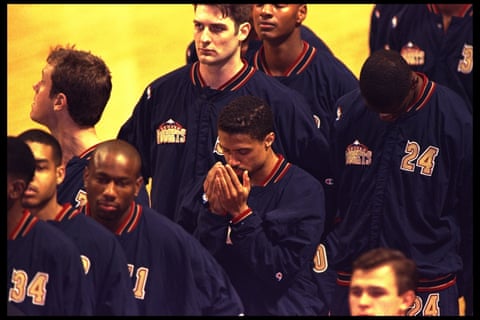When I was a younger man and my father was the age I am now, I wondered how he could be so isolated after the life he’d had. He’d been a high school teacher in the same small town for more than 40 years, a coach (basketball, football, and tennis), had been an active member of the same church for that long, played golf and tennis better than most, and had a fairly active social life up until he retired. Like me, he was introverted and lived a lot of his life inside his head, but unlike me he had his church and friends he’d worked with for more than half of his life and lived in a town full of ex-students.
Like me, he’d retired under less-than-pleasant circumstances. He’d managed to finagle a fair number of math classes without having a math degree, which in the 90’s was a tough hike. Back then, the Kansas education system was still pretending to hold itself to something resembling standards. With new, younger school administration, he no longer had the clout of having “friends in high places” to protect his classes from younger teachers with better credentials. By the time he retired, his class load had been reduced to accounting and “business math” (stupid kid math) courses and he was fairly disgusted with both the assignments and the students. So, he retired before he was fired and there weren’t many of the people he’d worked with left in the school at that time.
My situation was slightly better for me, but about the same for the places where I worked. The only part of my three side-hustles that still had customers and paid consistently well was the “audio forensics” business I’d slid into a decade earlier, but working for lawyers means constantly having to fight to get paid. Like Trump’s fans brag about their Messiah, “You don’t get rich paying bills.” My two teaching gigs were steadily becoming less ethically sustainable: the music college had abandoned its vocational mission for bigger money with less work in academia and the “motorcycle safety” business steadily became more focused on “putting butts on seats” than safety. Both businesses were heading toward obsolescence and fighting it the dumbest way possible. Like my father, I could afford to retire and my personal mission was becoming harder to identify in both of those places.
Like my father, during my working life I had been pretty well ensconced in several “communities,” from education to motorcyclists to music and music technology to audiophiles to professional and amateur acoustics. I knew a lot of people who did a lot of different things. I had one big party to celebrate my 65th birthday (July 2013) and my retirement (I will always be sorry that I was so busy cooking for that party that I didn’t take a single picture of the people who came to wish me well.) and began my fade into black. I didn’t give up the motorcycle stuff until 2018, but I’d dramatically cut-back my course load to no more than a half-dozen classes a summer by 2017. Like my last couple of years at McNally Smith College of Music, I had become pretty vocal in my disappointment at the program’s lack of an honest mission and, I suspect, everyone was glad to see me go. I wasn’t unhappy to be leaving, either.
What I didn’t expect was to have, what I’d imagined to be friendships, vanish with the work. Most (99%) disappeared overnight, a few took a month or three to wander away, and a handful still bother to communicate with me occasionally. In retrospect, I think Ms. Day and I both underestimated and undervalued what we had in the Cities.Our 130-year-old house and 2 1/2 acre lot had become mostly a chore and the noise of that location seemed to me to be screaming “Get out while you can still hear the noise!” We made a fairly detailed list of priorities for a new home and, for me, noise levels were high on the list. Due to other considerations, including a price range that we could afford in cash, we mostly ended up looking outside of the Cities and settled in Red Wing. I grossly overestimated the tourist attraction of Red Wing and I have been surprised that so few of our friends have ever visited us here. I also over-estimated my willingness to stay involved in local activities, especially the motorcycle and music stuff with which I expected to fill my retirement time. Not that different from my father’s expectations for golf and tennis.
.jpg)
 Early in the next (‘94-‘95 season, Abdul-Rauf began to speak out against the US invasion and occupation of Iraq and the US positions in North Africa. He had converted to Islam and made a point of not standing for the anthem because he interpreted that act as worshiping idols and
Early in the next (‘94-‘95 season, Abdul-Rauf began to speak out against the US invasion and occupation of Iraq and the US positions in North Africa. He had converted to Islam and made a point of not standing for the anthem because he interpreted that act as worshiping idols and 
.jpg)